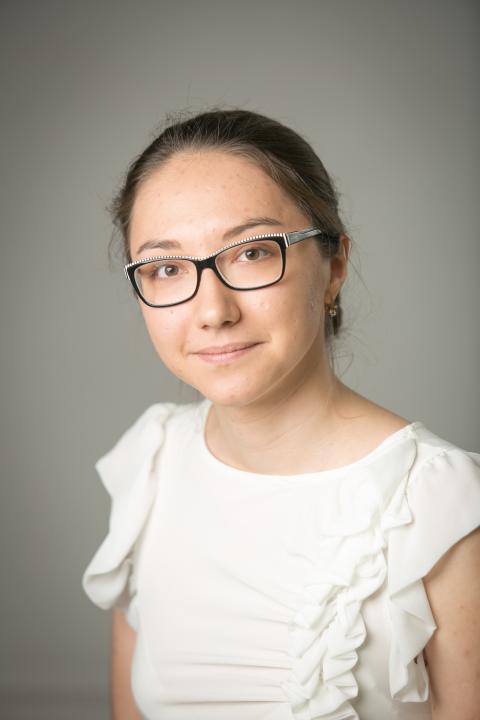PhD student HSRI: Evgeniya Vedernikova
Our PhD students have the floor

Evgeniya Vedernikova started her PhD Project "The Emotions Within: Improving the Accuracy and Impact of Emotion Measurement in Wellbeing Across the Lifespan" (part of Healthy Lifespan) in 2022.
Learn more about Evgeniya Vedernikova here.
Can you tell us something about you?
My name is Evgeniya Vedernikova, I was born and raised in Ekaterinburg, Russia. It’s an industrial city on the border between Europe and Asia, surrounded by forests and old Ural Mountains.
I did my Bachelor studies in Psychology at the University of Lille, France (2014 – 2017), during which I spent an exchange year in the US, at Nebraska Wesleyan University. For my Research Master, I completed the program at KU Leuven, Belgium (2018 – 2020) with the internship at the University of Amsterdam, the Netherlands (2019 – 2020). Later, I was a research assistant there (2021). Afterwards, I worked at SMA Europe (2021 – 2022), a European umbrella patient association for people with spinal muscular atrophy.
The PhD project I am involved in aims to develop ecologically valid, contextually sensitive measures of emotion that can be used in intensive, longitudinal, within-person research such as experience sampling (ESM) that would allow to follow emotion-wellbeing dynamics across the lifespan and during major life events.This project is the collaboration of researchers from three different departments: Yasemin Erbaş (Department of Developmental Psychology), Joran Jongerling (Department of Methodology and Statistics), and Seger Breugelmans (Department of Social Psychology).
Did cross-departmental research play a role during your bachelor’s/master’s studies? To which extent?
Although I don’t remember any of my previous studies to be officially called “cross-departmental”, the idea of interdisciplinary approach has resonated with me. During my Bachelor and Master, we have often had professors from different departments/research groups and were encouraged to work on a wide range of topics. For my later work, the contribution of people from different backgrounds was one of the priorities. Hence, I would say that consideration of various points of view and expertise has been present in my study/work life to an important extent.
What excited you about this multidisciplinary project you applied for?
Throughout a long time, I have been fascinated by emotions, their functioning, and doing emotion-focused research was something that I have really wanted to carry out. Both my Bachelor and Master theses were about emotion-related processes, so for my PhD research I was also looking for a project in this field of studies. Something that excites me about this multidisciplinary project is that emotions are viewed and researched from different perspectives: developmental, methodological, and social. Thus, the representation of emotions should be more integrated and multi-faceted and thus we can know more about their functioning.
Why is cross-departmental research important for your PhD project? What does it add to the project?
My project concerns within-person emotion dynamics across ages and contexts. Thus, for the “across ages” part the developmental psychology expertise could benefit the research, for the “context” part – social psychology is relevant, and given the amount and various levels of data because of the ESM part involved, expertise in statistics is necessary. Since the project has diverse facets to examine, diverse knowledge is needed to do it efficiently and of a good quality. That is why cross-departmental research is helpful here.
What do you like about cross-departmental research
Overall, I think an interdisciplinary approach is very valuable and allows one to see a problem from different angles, look at it deeper, and find more nuanced and fine-grained solutions. That’s what I like about it.
Cross-cutting themes
The Herbert Simon Research Institute for Health, Well-being, and Adaptiveness is a research center devoted to carrying out excellent, state of the art research in order to contribute to healthy and resilient people. We have selected three themes, which involve the collaboration between various Departments and address actual themes in need of both fundamental and applied research.
